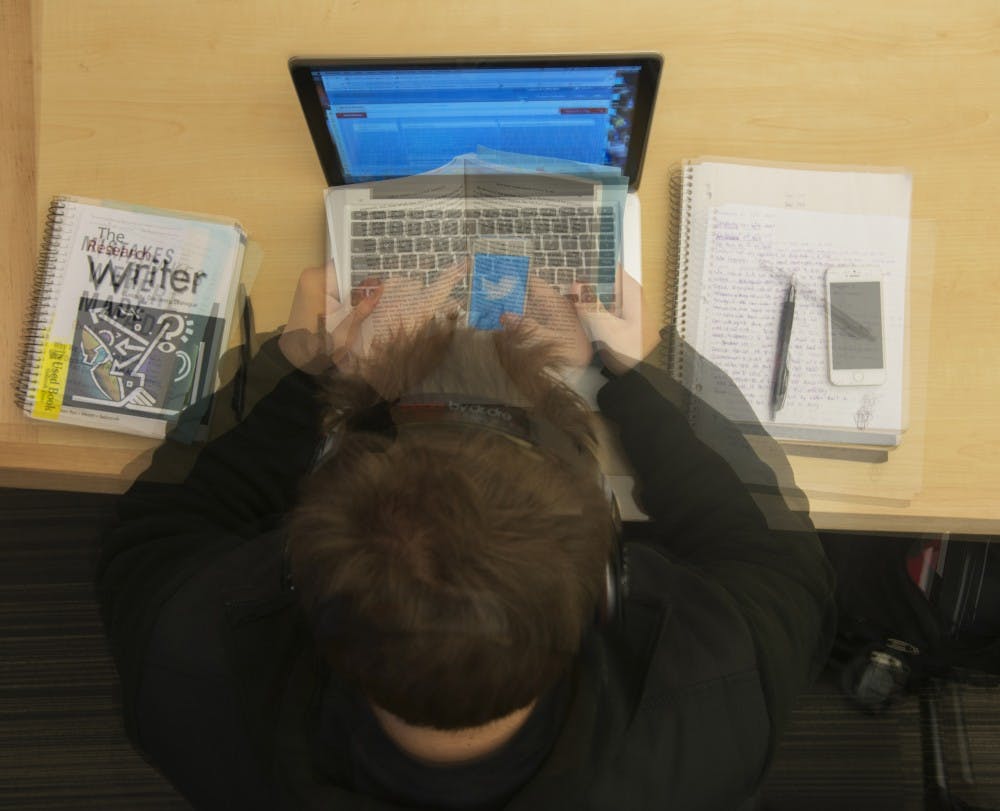Only 2 percent of people are actually able to multitask effectively, so the rest of the population is actually hurt by the common practice, according to a University of Utah study.
So as students are in the process of taking or studying for midterm exams, they might do well to keep this in mind.
Many psychologists believe multitasking is a myth, and David Perkins, a professor of psychological science, agrees.
“Attention is very selective," Perkins said. "You can’t actually do two or more mental things at exactly the same time. Research also suggests that a typical person’s brain processes 173 billion bits of information in a lifetime, making your attention a finite resource, like time or money.”
Kerri Pickel, a professor of psychological science who teaches classes about multitasking, said it’s not that simple. Whether it's possible depends on a lot of variables.
"We can’t pay attention to everything going on around us at once," Pickel said. "We are constantly being bombarded with all sorts of information when our capacity is limited.”
Pickel said people are able to multitask, but they have to think about the difficulty levels of each task.
The way Pickel teaches her class about it is through an analogy.
“Imagine a big tank of water which represents our attentional resources,” Pickel said. “You can pour out a little bit of water for simple things like walking and chewing gum at the same time. But if you do things that are more difficult and require you to actively pay attention, you will have to empty the tanks. It’s impossible to fully give all your water to more than one thing.”
Pickel said along with doing multiple high difficulty level tasks, people usually will purposely give up or may start to fail one or both of the tasks without even realizing it, which can cause issues.
Rachel Marquart, a professor of English, said she sees those issues within the classroom — especially with technology.
“Even if students are taking notes on their laptops, they have many opportunities to get distracted with the Internet," Marquart said. "Phones are probably the biggest distraction problem because not only do students not pay attention when they are looking at their phones, they often don't learn anything that I teach.
"This is why we end up discussing the same thing in class three times, because people get distracted. When they are distracted, they don't listen, which means they obviously aren't comprehending.”
However, she said multitasking isn’t always negative. For example, if students are taking notes about what they're learning, it can be helpful.
“Research has shown that actually writing something down helps people to remember things better," Marquart said. "Personally, [when working on a paper] I will move in my chair, get up and walk around or click my pen when I am writing, because that's how I think best.”
Pickel said the reality is, multitasking isn’t something people think about or can really change, it’s just something they do.
“There is research that has been done that suggest that people don’t get better at multitasking,” Pickel said. “You only think and feel like you do but it’s all mental.”




